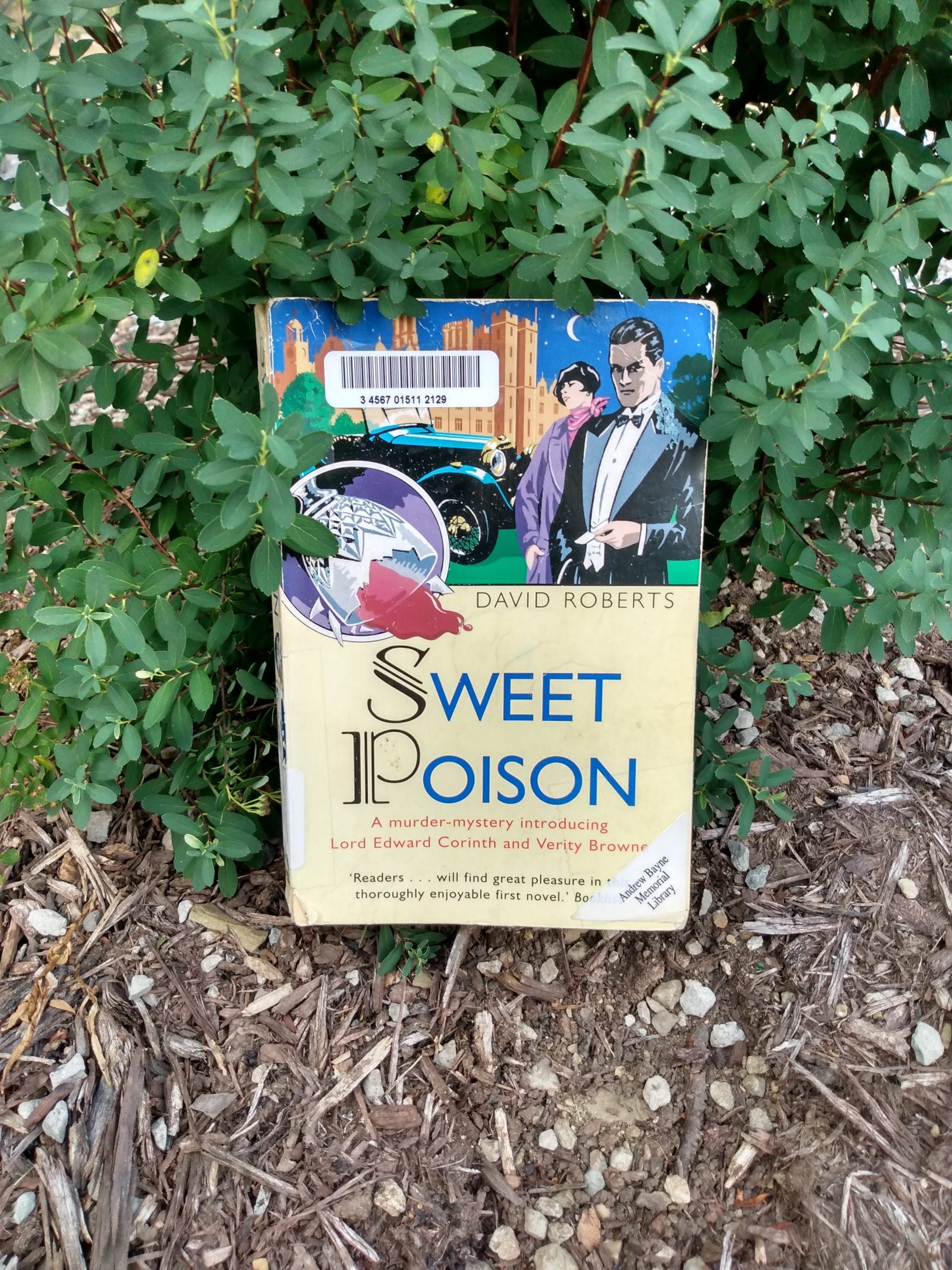After crashing his car on the way to his brother’s informal gathering of influential men, Lord Edward Corinth is rescued by communist reporter Verity Browne, who happens to be nearby as she’s interviewing his sister-in-law, the Duchess of Mersham, the next day. As they’re disastrously late, and Edward was supposed to mitigate some tension at dinner, he and Verity agree to spend the night in the Duke’s country home. However, just as they’re settling into their meal, a war hero dies of cyanide poisoning in front of the entire party.
Despite the Duke’s hopes, the case is clearly murder, and Lord Edward and Verity both feel an obligation to find out who killed the man, even if he goes against everything that Verity believes in – as does Edward. Can a communist reporter and a member of the ruling class find common ground for justice?
I found that I didn’t mind this novel. Granted, the communist beliefs espoused by Verity and her friends were distasteful, but it wasn’t so overwhelming that it made me want to throw the book down. However, it did really get me when one of Verity’s friends said he’d been to Russia and was expounding on how wonderful life is there – in communist Russia in the 1930’s! Anyways, it was enough to feel a little sorry for Verity for getting caught up in communist beliefs, but not so much that the book was a manifesto.
The idea of communist reporter and Lord of the Manor teaming up together to solve a crime was a great premise for a book, and it played out splendidly. Naturally, there was some tension between Verity and Edward because of their beliefs, but there was also an undercurrent of sexual tension between the two as well. They put their differences aside for the sake of finding the truth, and while Edward wasn’t converted to communism by the end of the book, Verity was questioning her commitment to the cause after mixing with members of the upper classes who weren’t as sadistically evil as she’d been taught.
I think this whole novel took me by surprise; the mystery was well-done and I didn’t guess the killer, but there was a lot of focus on political parties, naturally, and the issues of fascism (remember, Hitler is coming to power in the 30’s) vs communism vs capitalism were crossed many times. There wasn’t an academic approach to this discussion, but I think the volatility of the times was shown in its way. It seemed like everyone knew there would be a second war, but they were either in denial or still freeing themselves from the horror of the last one for them to take Germany too seriously.
I may try the second novel; this wasn’t my favorite book ever, but it certainly captured my attention and did a good job of teaching me about attitudes during the 30’s that I’ve never considered before. I sort of gloss over the period between WWI and WWII as it’s so short, but obviously that’s a mistake as important things happen during peacetime, too.
